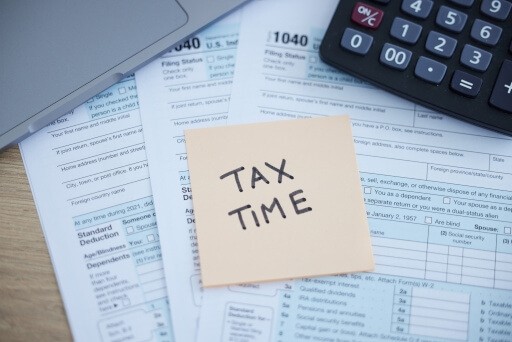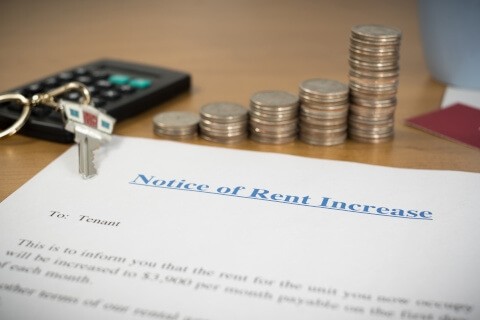There’s much to think about as the year comes to an end. There are holiday events to attend, dinners to plan, and gifts to purchase. But as a landlord, there’s something else that’s probably on your mind right now: tax season.
According to the IRS, you can claim a variety of expenses, including property tax, depreciation, repairs, operating expenses, and mortgage interest. The term “operating expenses” is a little ambiguous, so let’s dive in and determine what these are (and what they aren’t).
What Is an Operating Expense?
Basically, anything you need to do to keep your rental property in its current state could be considered an operating expense. The IRS defines operating expenses as “certain materials, supplies, repairs, and maintenance that you need to make to your rental property to keep your property in good operating condition.”
Hopefully, you’re already tracking your rental income and property expenses to prepare for tax season, but you may be wondering about what qualifies as an operating expense. How are those costs different from capital expenses, and how do you tell the difference between the two?
Some examples of operating expenses include:
- Maintenance costs
- Cleaning fees
- Pest control
- Basic repairs
- Insurance
- Property Manager fees
- Employee salaries (including contractors)
- HOA fees
- Utilities
These expenses are necessary because without them, you wouldn’t be able to keep your property in its current condition. However, they don’t add value or extend the life of the property. They simply keep the property as it is. If what you do adds value or improves your property, then it is not considered an operating expense.
What Isn’t an Operating Expense?
If you decide to add a swimming pool, redo the kitchen, add a bedroom, or make other upgrades to your property, those are not considered necessary to maintain the property and therefore aren’t operating expenses. The IRS states you can’t deduct the cost of improvements. These costs are recovered through depreciation. If you do anything to your property that changes it from its current state, that’s considered a betterment, not an operating expense.
Things that are not considered an operating expense:
- Improvements (such as a new roof or water heater)
- Major repairs
- Depreciation
- Mortgage payments
If you’re not sure if your expense is a repair or an improvement, think about the alternative. For example, patching a spot on the roof to stop a leak doesn’t improve the property, it just repairs a problem. However, if you replace the entire roof, that’s an improvement because you just extended the life of the property. If you repair a broken water heater, that’s an operating expense. If you replace it, that’s an improvement.
What’s a Capital Expense?
A capital expense is anything that makes your property better than what it was. If the improvement brings the property back to like-new condition or extends the life of the property, it’s a capital expense. This can include adding square footage, installing new appliances, paving the driveway, replacing the roof, etc.
When trying to decide if the investment you are considering making to your property is an operating expense or a capital expense, ask yourself: Does this add value to the property? If the answer is yes, consider it a capital expense.
You’ll claim this expense differently on your taxes. When you capitalize a cost, you’ll recover it over time, often several years, through periodic deductions for depreciation, depletion, or amortization. According to the IRS, all direct costs of an improvement, and all indirect costs, need to be capitalized. This would include otherwise deductible repair costs if they were incurred during the improvement.
Both capital and operating expenses are crucial to your business as a landlord. Since capital expenses are expensive, consider setting up a fund just for these instances. After all, a well-maintained property is an investment that will continue to benefit you if you take care of it.
You’ll want to monitor both operating and capital expenses to ensure your rental properties stay profitable. While there are several financial ratios and indicators you’ll want to use, let’s focus on the operating expense ratio.
What Is an Operating Expense Ratio?
An operating expense ratio, or OER, measures the cost to operate your rental property compared to the income it provides. To get this number, take your property’s operating expense, subtract deprecation, and divide that number by the annual income (the rent you receive each month x 12). You want the result to be lower than 80 percent, but the lower it is, the better. A good place to be is between 60 and 75 percent.
The OER doesn’t measure the profitability of your rental property, but rather how efficiently you’re operating your property. Make sure you’re viewing this ratio in the right light. There are several things not accounted for in this formula, such as your mortgage, any improvements you’ve made to the property, and other debts. Knowing this ratio shows you the potential profit from the property, and it can also help you determine what potential issues you might face that could impact your profit.
If your OER is too high, you’ll want to look for ways to cut expenses. Look at utility costs to see if those are higher than they should be, and shop around for less expensive alternatives. If you realize you’re spending money every month to patch yet another leak in the roof, perhaps it would make more sense in the long run to replace the roof. Look at the rent you’re charging, as well. Markets fluctuate, and if you haven’t raised the rent in a long time, it might make financial sense to do so. Check the area comps to make sure you’re charging the right amount of rent for your neighborhood.
Why Is Knowing the OER Important?
Perhaps you’re thinking about growing your business by adding another rental property to your portfolio. To do this, you’ll need a loan. The OER is a great way to show lenders that you have good financial stability. Even if you aren’t planning to borrow money, knowing your OER can show you how to mitigate expenses and maintain your property more efficiently. In short, it will help you make better financial decisions.
If you have concerns about your OER, sit down with your financial advisor and discuss what you can do to make your business run more efficiently. If you’re looking for an easy way to track your expenses, be sure to check out Apartment.com’s rental expense tracking platform, where you can get a summary of your expenses by property and the tax category they fall under, just in time for tax season.











